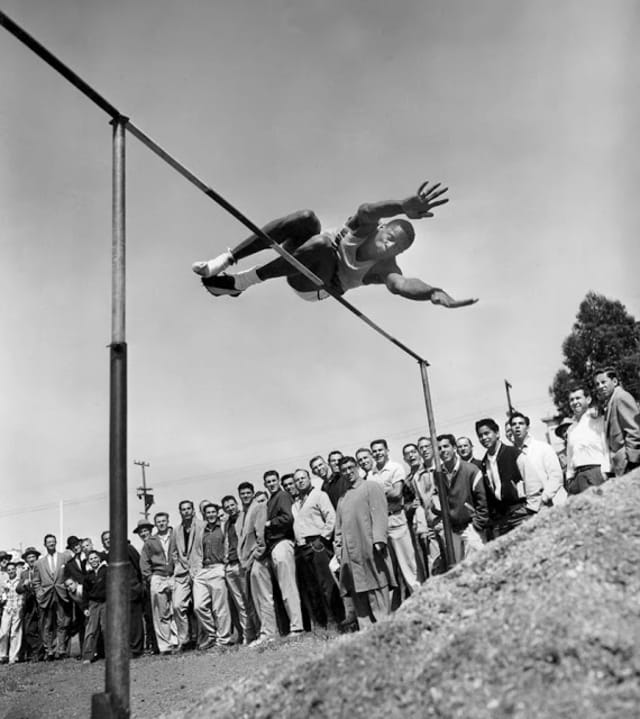FIBA Hall of Famer and Olympic Gold Medalist Bill Russell passes away at 88
MIES (Switzerland) - One of basketball's greatest legends, Bill Russell, has died. A member of the FIBA Hall of Fame and the Naismith Memorial Basketball Hall of Fame, Russell passed away on Sunday at 88.
MIES (Switzerland) - One of basketball's greatest legends, Bill Russell, and a member of both the FIBA Hall of Fame and the Naismith Memorial Basketball Hall of Fame passed away on Sunday at the age of 88.
An announcement… pic.twitter.com/KMJ7pG4R5Z
— TheBillRussell (@RealBillRussell) July 31, 2022
The best player in the NCAA-title winning San Francisco Dons teams in 1955 and 1956, Russell led the USA to the gold medal at the Melbourne Olympics before launching a championship-winning career with the Boston Celtics.
He captured 11 NBA titles with Boston, including eight straight from 1958 to 1966. Russell was five times named as league MVP.
Russell was also a trailblazer as the NBA's first black head coach. He took the reins of Boston in 1966 and held them through 1999. He also had stints at the helm of Seattle (1973-77) and Sacramento 1987-88).
To be the greatest champion in your sport, to revolutionize the way the game is played, and to be a societal leader all at once seems unthinkable, but that is who Bill Russell was. (1/4) pic.twitter.com/K0Ue0hKiLs
— Boston Celtics (@celtics) July 31, 2022
Russell was the ultimate center on defense. He was intense and had plenty of smarts. His will to win was unrivaled.
With the USA at the 1956 Olympics, he was a towering presence.
Russell was the biggest name on an American team that averaged nearly 100 points per game in Melbourne and their average margin of victory was 53.5 points.
In their first game, Russell had 20 points as the USA beat Japan, 98-40. He also played well in the next game, a 101-29 triumph over Thailand.
USA Basketball mourns the loss of basketball titan, humanitarian & 1956 Olympic gold medalist Bill Russell. pic.twitter.com/bBlAX7bdYP
— USA Basketball (@usabasketball) July 31, 2022
He was once asked about that game.
"We were playing Thailand, the center was 5ft 10in (1.77m)," he said. "Did I feel any guilt? Not for one moment (laughs). What we did, we were the classic, classic ugly Americans (smiles). We wanted to see how bad we could beat them, and we played just as hard against them as we did against the Soviet Union."
He explained in another interview: "But it was kind of a compliment to them (Thailand), at least from my point of view. It meant we played as hard against them as we did against the other teams out of respect. You don't go out there and say, 'Well, I don't have to do very much to beat you guys.' To me, that's disrespectful. But I wanted a gold medal. So the experience was unique in that it was fulfilling one of my goals."
The USA won 89-85 in the Gold Medal Game over the Soviet Union (highlights in above Olympic video)
If it's widely accepted that defense was his forte, Russell could nevertheless do it all on the court.
One of his iconic performances for Boston came in Game 7 of the 1962 NBA Finals against the Los Angeles Lakers when he had 30 points and 40 rebounds in the Celtics' 110-107 triumph.
Russell was such a great athlete that at San Francisco, he was also a track and field star.
"I could have qualified (for Olympics) in two different sports," Russell once said. "I was in the top five in the world in high jumping, in track and field. And the guys on the American team, two out of the three, I had beaten regularly.
"But after I made it in basketball, we had been friendly competitors, so I dismissed going out for the track team because the other two guys, we had been friends over two seasons. And I was, as we say, on the boat (to Melbourne). I wasn't going to take two seats. Maybe I wouldn't have won anyway, but I could have made the track team."
 FIBA Hall of Fame center Bill Russell was one of the best high-jumpers in the world
FIBA Hall of Fame center Bill Russell was one of the best high-jumpers in the world
Russell, who went into the FIBA Hall of Fame in 2007, always cherished the time he played for the USA at the Olympics.
"The memories of being in this competition, at that time the highest competition on the planet, and to do well was just completely satisfactory," he said.
More important than his career as an athlete, Russell was a strong advocate for civil rights.
It was something that NBA commissioner David Silver referred to in statement following Russell's death.
Silver said: "Bill stood for something much bigger than sports: the values of values, equality, respect and inclusion that he stamped into the DNA of our league. At the height of his athletic career, Bill advocated vigorously for civil rights and social justice, a legacy he passed down to generations of NBA players who followed in his footsteps.
"Through the taunts, threats and unthinkable adversity, Bill rose above it all and remained true to his belief that everyone deserves to be treated with dignity."
FIBA